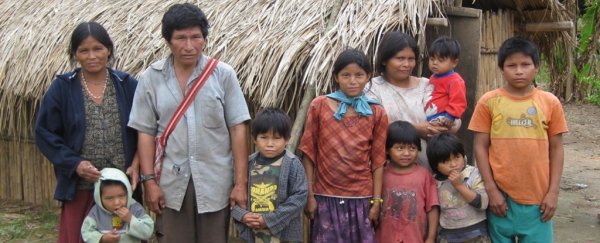Thanks to the way research is conducted, our perception of human psychology is based largely on subjects who are largely western, educated, industrialised, rich, and democratic. Which is a little… WEIRD.
UC Santa Barbara anthropologist Michael Gurven argues this has to change, and has turned to an isolated indigenous population in the Bolivian Amazon to show us why.
"There's a growing set of examples of how certain stylised 'truths' are believed to be universal, but when you look in different places, you often find that's not the case," says Gurven.
To be fair, even when it's not explicitly stated, science comes with a caveat that admits theories are only ever as good as the observations that precede them. We know we can change our minds as we discover new things.
But this fine print can often get lost in the reporting. And when the vast majority of studies on human behaviour are carried out on a convenient pool of willing subjects – namely university students – it's hard to remember how truly limited our understanding is.
"It's easier and it's often less expensive to study those in your large undergrad classes," says Gurven.
"And people might argue that if they're studying, say, perception, then maybe it doesn't matter whether they do it here or someplace else."
According to Gurven, only 18 percent of the global population matches the typical subject studied by institutions in western nations across Europe and North America.
Not only does this typical sample fail to represent today's global population, it doesn't say much about how our ancestors might have lived.
Rather than use studies to seek out what makes us all the same, Gurven suggests we should be placing greater value on what makes us all so different.
Socioecological variability takes into account the interplay between our collective behaviours and the immediate environment when it comes to our global diversity.
A framework of psychology based on socioecology would ask why we behave the way we do within a particular setting, providing for a better foundation in understanding how our minds work.
"Whereas psychologists and other social scientists do not usually incorporate that perspective directly in their studies – instead treating all humans the same, or ignoring their background altogether," says Gurven.
Putting his preaching into practice, Gurven has made use of his expansive research on a group of people in the Amazon called the Tsimane, and attempted to explain their personalities according to socioecological variability.
In most psychology text books, personality can be broken down what we call 'The Big Five', or the OCEAN Model. This taxonomy sorts our dominant traits as being a mix of openness, conscientiousness, extraversion, agreeableness, and neuroticism.
While the The Big Five has its critics, it continues to hold a prestigious place in research circles as a convenient way to compare and contrast types of individual behaviour.
One problem with the model is that some groups of people don't seem to have five major personality types. The Tsimane, for example, only relate to two – industriousness and sociability.
Putting it another way, if the Tsimane conducted their own psychology research, they'd describe humans as either keen collectors of provisions, or as adept at politics and management.
This difference in perspective certainly becomes a lot clearer when we take into account our respective lifestyles. So Gurven looked at studies that examined The Big Five measures within different cultural settings.
"We looked at the degree of correlation across all five factors," Gurven says.
"The correlation should be close to zero if the Big Five are truly independent. But when you compare the US, Canada, Indonesia, all the places this has been done, it turns out there's a lot of variability in how correlated they are."
In addition to framing personality types within different socioecological settings, Gurven took a closer look at how our perspectives on healthcare or security might differ depending on our surroundings.
It's easy to assume most humans want to live long and prosper, but our means of pursuing it often depends on how secure we feel any given moment, which in turn can affect traits such as impulsivity and vigilance.
These aren't trivial matters, according to Gurven, who feels it could be playing a key role in our difficulty in replicating important studies.
Fortunately, researchers don't need to travel to places like Bolivia to push the boundaries on their samples.
"There's plenty of diversity within the United States that's untapped, most of it outside the ivory tower of the academy," he says.
This research was published in PNAS.
